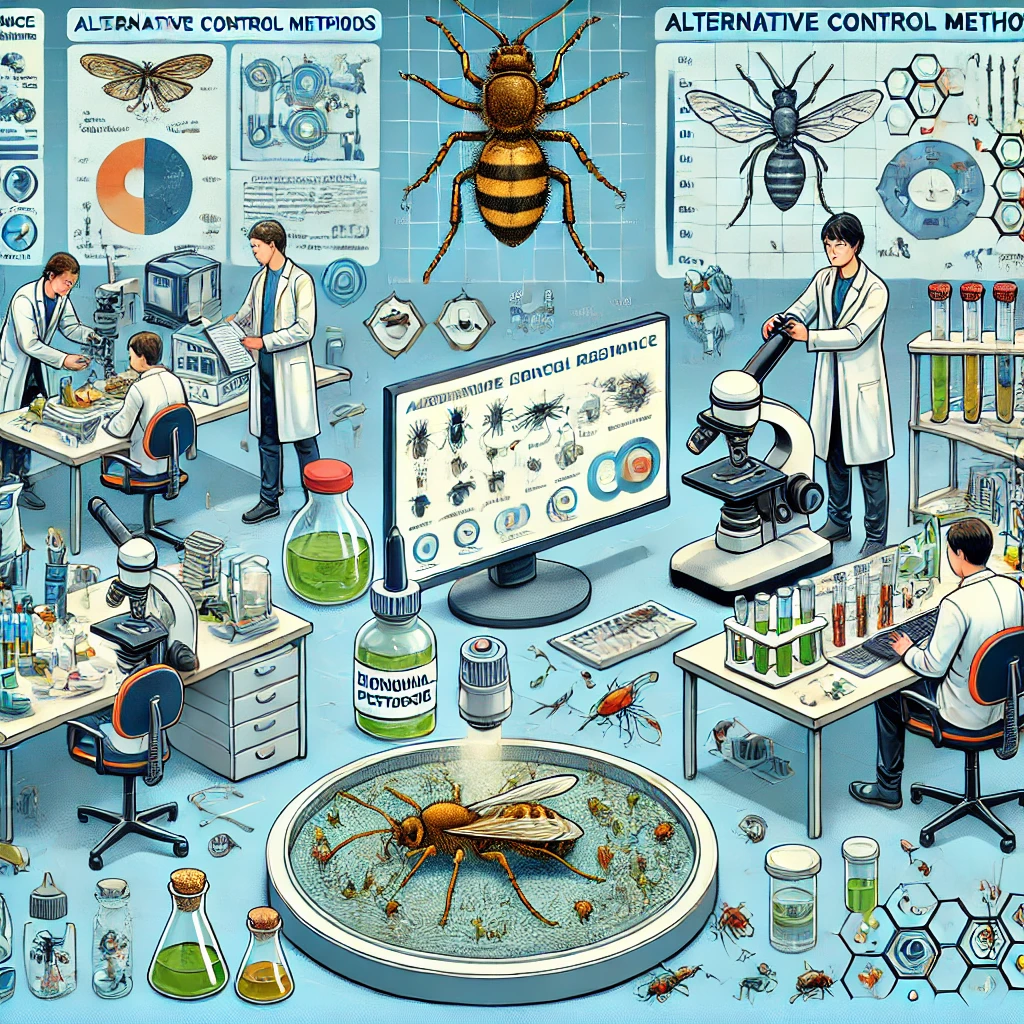Introduction to Pest Resistance
Pest resistance to control methods is a significant challenge in integrated pest management. As pests evolve, they can develop resistance to conventional and alternative control methods, complicating pest management efforts. This essay evaluates pest resistance to alternative control methods, including biological controls, cultural practices, and novel pesticides.
Biological Control Methods
Biological control involves using natural enemies of pests, such as predators, parasitoids, or pathogens. Although generally effective, resistance can still occur. For instance, certain pests may evolve behaviors or physiological traits that reduce the efficacy of biological agents. Evaluating pest resistance to these methods involves monitoring changes in pest populations and effectiveness of biological controls over time.
Cultural Control Practices
Cultural practices, such as crop rotation and sanitation, can prevent pest infestations and reduce resistance development. However, pests may adapt to these practices by altering their lifecycle or habitat preferences. For example, pests might develop resistance to specific crop varieties used in rotation. Effective evaluation includes assessing how pests adapt to these changes and adjusting cultural practices accordingly.
Novel Pesticides and Chemical Controls
Alternative chemical controls, including biopesticides and organic pesticides, offer new approaches to pest management. Yet, pests can develop resistance to these substances as well. For example, pests may evolve mechanisms to detoxify or avoid novel pesticides. Evaluating resistance involves conducting field studies and laboratory tests to assess the durability of these new chemicals against evolving pest populations.
Integrated Pest Management (IPM) Approaches
Integrated pest management combines multiple control methods to reduce resistance. This approach can be more resilient, but pests may still adapt to IPM strategies. For instance, pests may become resistant to certain control measures used within an IPM framework. Evaluation of IPM effectiveness requires continuous monitoring and adaptation to ensure that resistance does not undermine the overall strategy.
Future Directions and Research
Research is crucial in understanding and mitigating pest resistance to alternative control methods. Future efforts include developing new control agents with multiple modes of action, enhancing surveillance techniques to detect early signs of resistance, and integrating genetic tools to manage resistance. Ongoing research will help to improve the efficacy and sustainability of alternative pest control methods.

